China’s embassy could hold the clue to Russia invasion date
China is holding steadfast on one thing and the final warning of Russia’s invasion may be when China relents on it.
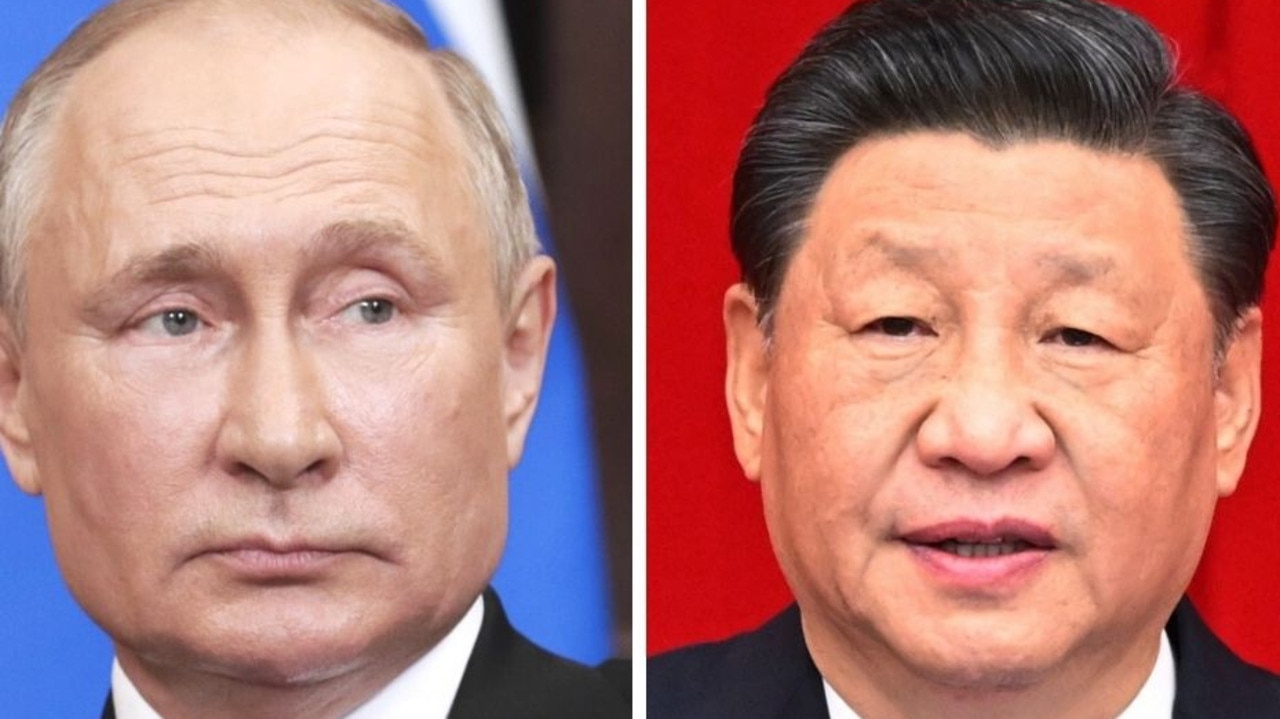
Troop ships have been put to sea. Artillery has taken up position on the borders. Tanks and trucks are streaming onto the highways.
But the final warning of Russia’s invasion may be what happens at Ukraine’s Chinese embassy.
The telltale signs of war are flashing thick and fast.
Russia has mobilised large scale field hospitals and blood supplies. Cyberattacks are underway against mechanisms of government. Maintenance-hungry bombers have been forward-deployed to minimally prepared runways.
There are reports military engineers have begun building a bridge over a river just 8km from Ukraine’s border.
All that’s left is the “roll out” order. When that will come remains unclear.
The final clue may come through Moscow’s only prominent friend and supporter – Beijing.
So far, China has belittled the evacuation of embassies by the West.
Its embassy staff remain in Ukraine’s capital city of Kiev. That’s despite many military analysts believing it is the primary objective of President Vladimir Putin’s plan to install a puppet government.
Stream the latest news on the escalating tensions between Russia and Ukraine live & on demand on Flash. New customers try 14 days free >
Chinese Foreign Ministry spokesman Wang Wenbin said its embassy in Kiev has been operating "as normal" while urging the United States and its allies not to "hype the crisis." #jakposthttps://t.co/4BsYJfbJVa
— The Jakarta Post (@jakpost) February 15, 2022
Australia has evacuated its staff. The United States has moved its diplomats to a Ukrainian city closer to the border with NATO-member Poland.
The United Kingdom, Germany, Lithuania, Japan, New Zealand and the Netherlands have also urged their nationals to leave immediately.
China has so far remained steadfast.
Its “wolf warrior” diplomats have supported President Putin’s line that he has no intention to invade. But Beijing has offered no alternative reason for the mobilisation of 150,000 Russian frontline troops.
Nor has Moscow. And that leaves Chinese nationals and embassy personnel out on a limb.
The Beijing factor
The Beijing Winter Olympic Games end on February 20.
Their success is important to Chairman Xi Jinping. He wants the spectacle unsullied to validate the Communist Party’s iron-fisted controls over China’s populace and economy.
Mr Putin is well aware of this.
He flew to Beijing for the opening of the games in a bold display of solidarity between the two leaders.
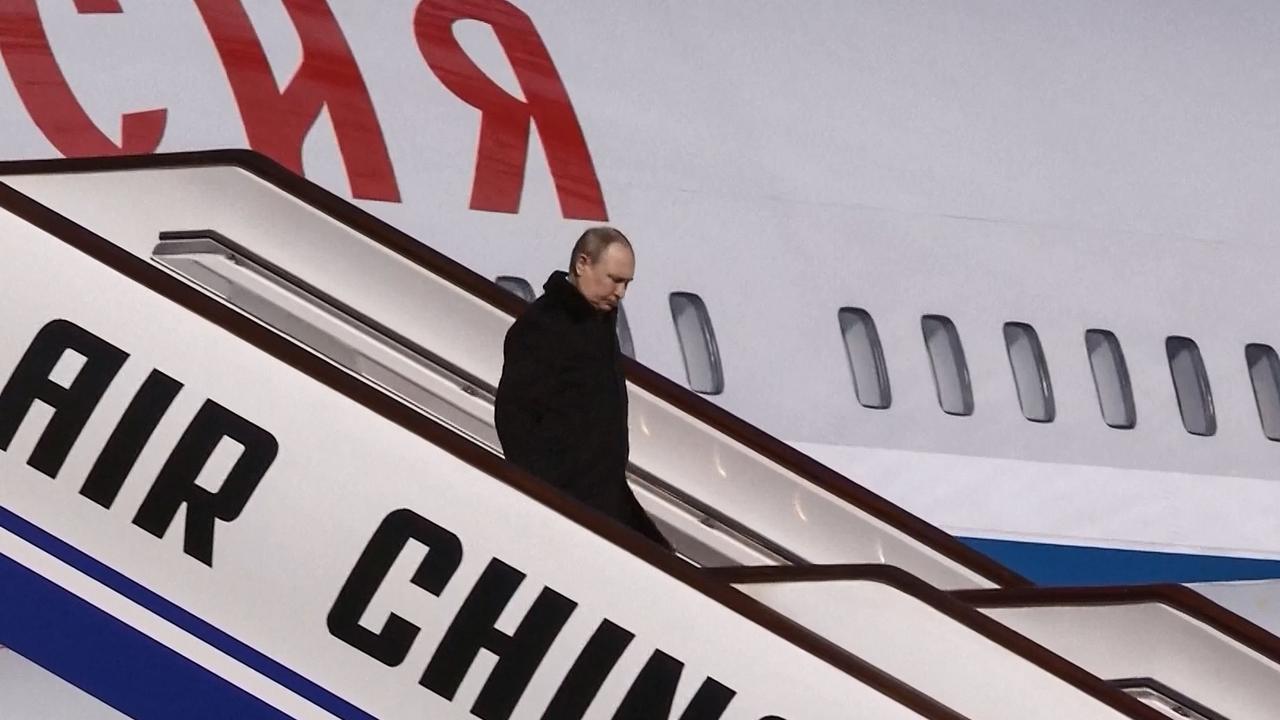
The emerging axis of power between Beijing and Moscow is an essential linchpin in opposing Washington. At their meeting earlier this month, the pair criticised “attempts by external forces to undermine security and stability in their common adjacent regions”.
They declared there was “no forbidden areas of co-operation” between the two countries.
But any “friendly fire” incident involving China’s embassy could strain this relationship.
China backs Russia’s “security concerns”. It agrees that NATO should revoke the membership of former Soviet Bloc states such as Latvia, Lithuania, Estonia and Romania. Its troops should withdraw to pre-1997 positions. Ukraine shouldn’t have the power to resolve its own “security concerns independently”.
It’s a stance that has drawn criticism from the United States.
Pentagon spokesman John Kirby said Beijing’s “tacit support” for Moscow was “deeply alarming”. “Their February 4 joint statement certainly provided further evidence that China has decided that they’re going to stand alongside Russia with respect to what’s going on in Europe,” he added.
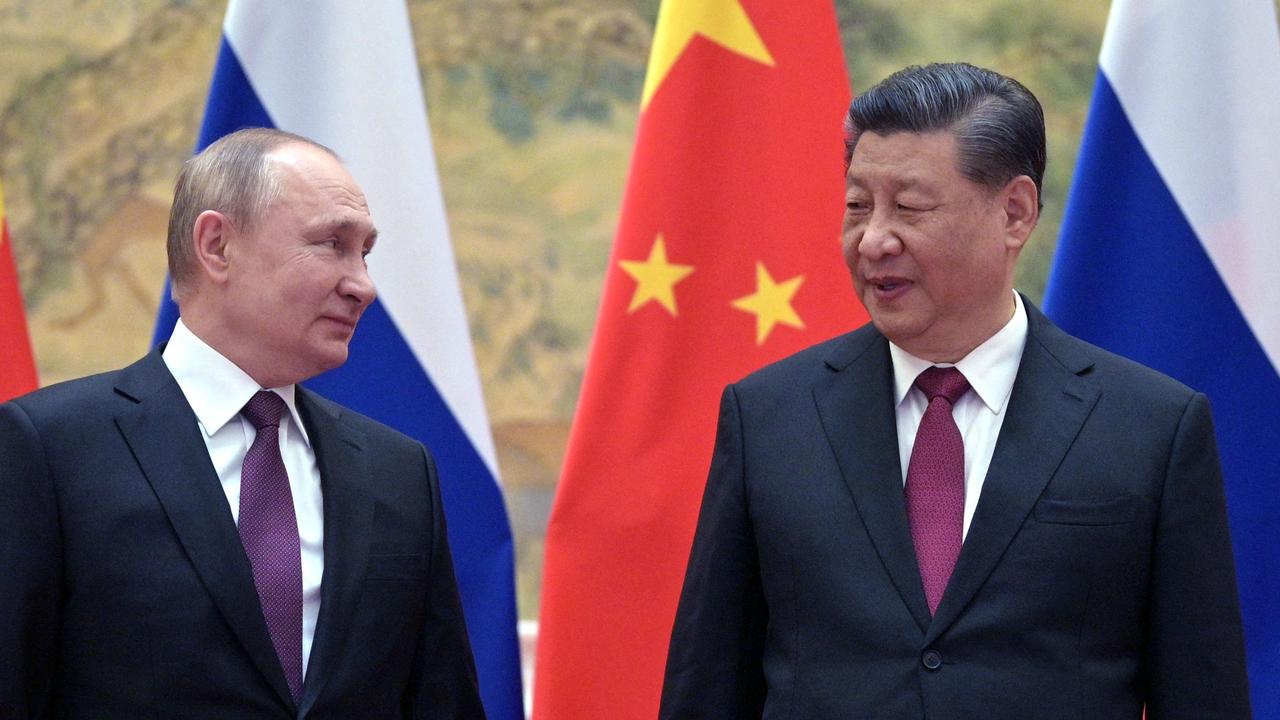
But Beijing has been cool on the idea of war.
“We call on all parties to remain rational and refrain from making moves that may escalate the tensions and play up and sensationalise the crisis,” Foreign Ministry spokesperson Wang Wenbin said on Tuesday.
“We believe all parties should sincerely abide by the Minsk II agreement and work toward the comprehensive resolution of the Ukraine crisis and related issues through dialogue and negotiation.”
Mr Wang lashed out at Australian Prime Minister Scott Morrison for criticising Beijing for being “chillingly silent” about Moscow’s preparations for war.
“We urge the Australian side to abandon the Cold War mentality and ideological bias and stop making belligerent rhetoric that will escalate the tensions,” he said. “Such acts of seeking selfish political gains by clamouring for confrontation are unethical and dangerous.”
A template for Taiwan
“Under the current circumstances, exaggerating and hyping up the possibility of warfare is not responsible behaviour,” Wang warned yesterday. “Resorting readily to sanctions and pressure won’t help to de-escalate the situation. Clamouring for bloc confrontation will only lead to the old path of the Cold War.”
Beijing’s interest isn’t entirely benevolent.
It sees similarities between Moscow’s “security concerns” and its own desire to seize Taiwan.
Mr Putin regards Ukraine as historically part of Russia.
Non-Russian speaking Ukrainians disagree.
Mr Xi regards Taiwan as historically part of the People’s Republic of China. Taiwan – the last outpost of the Republic of China – says it never surrendered to the Communist Party.
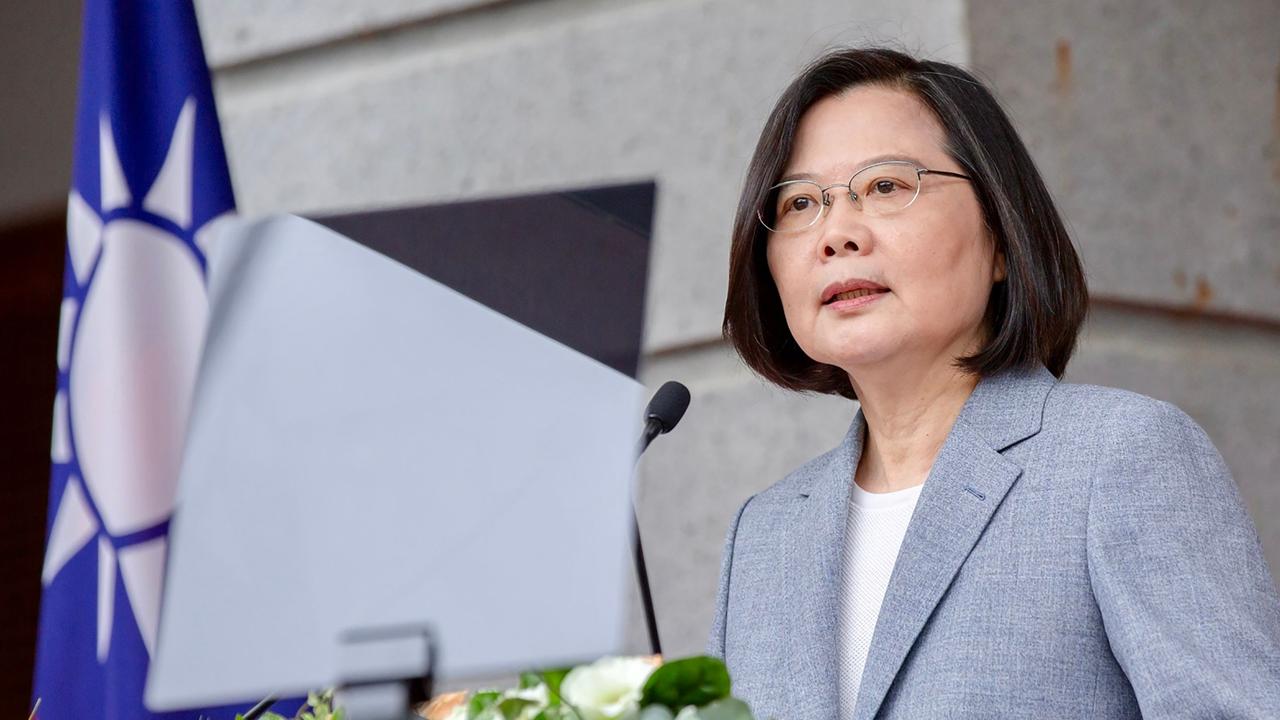
Taiwan’s President Tsai Ing-wen sees the parallels.
“Taiwan has faced military threats and intimidation from China for a long time. We empathise with Ukraine’s situation,” she recently told a gathering of her national security advisors.
Both Beijing and Taipei see Ukraine as a test of Washington’s resolve.
Chinese Communist Party spokesman Hu Xijin accuses Washington of following an “evil script” on Europe and Asia.
“Washington has repeatedly stated that once a war breaks out in Ukraine, the US troops will not be part of it,” he wrote.
“On the Taiwan question, the US hasn’t promised to send troops if there is a war in the Taiwan Straits. Thus, the US has no bottom line as it incites regional radicalism and extremism, forcing Russia to attack, and pushing China to make strong responses.”
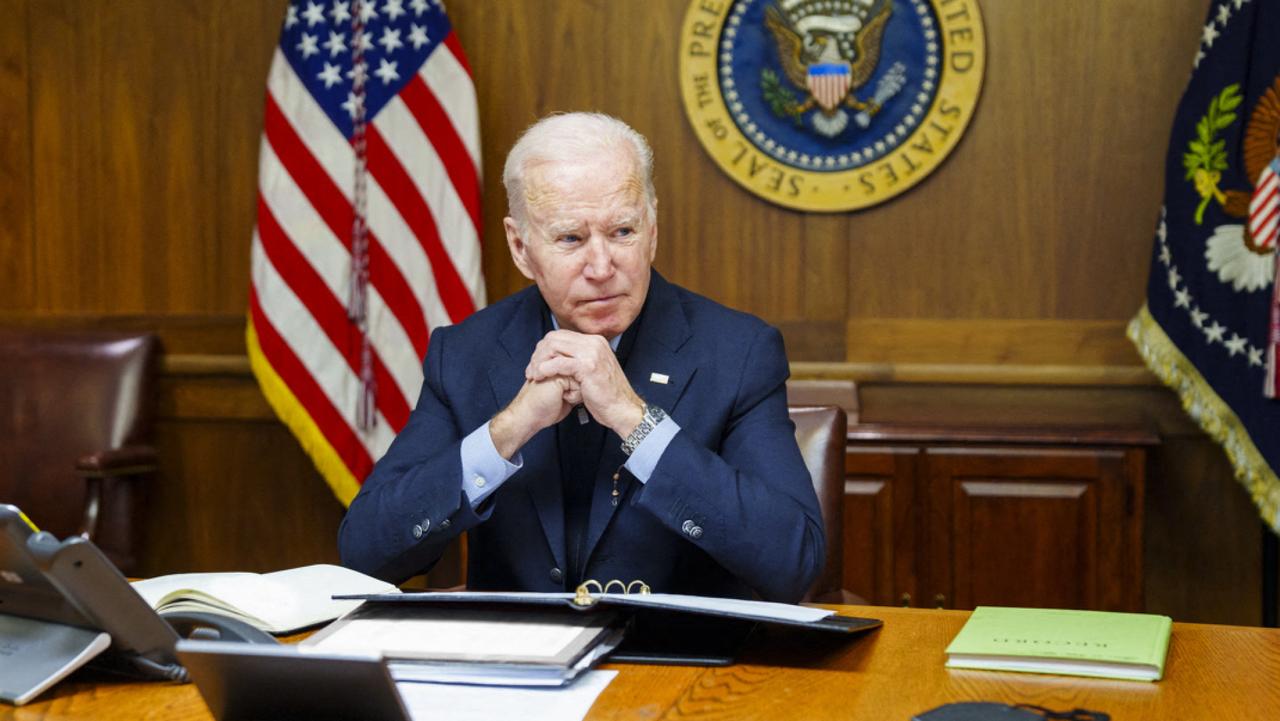
Does the United States have the political will to make a stand? And does that indicate whether or not the US military would intervene in any Chinese invasion of Taiwan?
It’s a credibility challenge Washington is aware of.
US Secretary of State Tony Blinken said during a visit to Australia last week: “Others are watching. Others are looking to all of us to see how we respond.”
Meanwhile, Moscow continues to call accusations it plans to invade “absurd”, insisting all such warnings are “hysteria”.
Beijing agrees. With a note of caution.
“China is closely monitoring the development of Ukraine’s situation,” Foreign Ministry spokesperson Wang Wenbin said on Monday.
“The Chinese Embassy and Consulate-General in Ukraine are working normally, and the embassy has issued a consular advisory that reminds Chinese citizens and institutions to closely follow the developments and increase their safety awareness.”
Jamie Seidel is a freelance writer | @JamieSeidel
Originally published as China’s embassy could hold the clue to Russia invasion date









